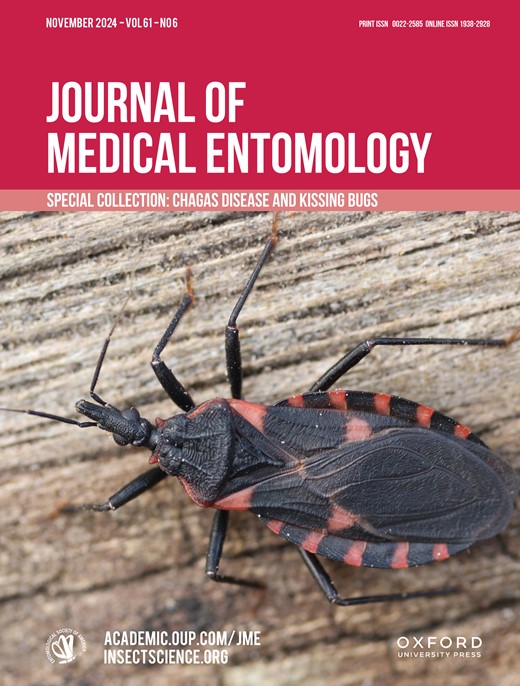J. Med. Entomol Special Issue out:
Dr. Gabriel Hamer and Dr. Sarah Hamer edited a special issue of the Journal of Medical Entomology about kissing bugs and Chagas disease.
Triatomine insects (a.k.a. kissing bugs) vector the protozoan parasite Trypanosoma cruzi, agent of Chagas disease, a neglected and deadly cardiac disease of humans, dogs, and other mammals. Triatomines are distributed across South and Central America and Mexico through the southern United States. While Chagas disease is known to have a large public health burden in many regions of Latin America, most human cases that are detected in the US are travel-associated, but there is increasing recognition for locally-acquired human Chagas disease cases. Increased surveillance has detected high levels of infection in dogs and other animal species across many southern states where infected kissing bugs are found.
This Special Collection on kissing bugs and Chagas disease explores the ecology, evolution, and control of triatomines and Chagas disease in North America. These contributions specifically explore the distribution and ecology of triatomines at their northern range limits, population genetics of a species complex, the development of a novel surveillance tool, natural symbiont regulation of T. cruzi infection, a review of triatomine control tools, and a protocol for triatomine colony maintenance. It is our hope that this Special Collection of articles stimulates further research exploring triatomines and Chagas disease in the Americas with the goal of reducing the burden of human and animal disease.
All the papers in the collection are freely available to read and download.

